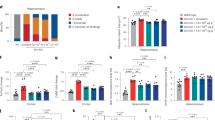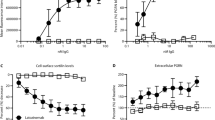Abstract
Frontotemporal dementia (FTD) is one of the most important neurodegenerative conditions and Granulin (GRN) is one of the major genes associated to the disease. FTD-GRN patients are still orphan for any evidence-based target-therapy approach. Interestingly, it has been recently found that alkalizing agents rescued haploinsufficiency in cellular models expressing FTD-GRN mutations. We set up a pilot phase II clinical trial in five FTD patients with GRN Thr272s(g.1977_1980delCACT) mutation, to determine if amiodarone (200 mg/day) may (1) reverse progranulin deficiency and (2) delay disease progression. Each patient was scheduled for 7 study visits over 12 months period. We assessed GRN levels at baseline and after amiodarone administration during the treatment course. Somatic and neurologic examinations, along with cognitive and behavioral assessment were recorded as well. No significant effect on peripheral GRN levels was observed. In treated FTD, disease course did not differ when compared with a group of untreated FTD-GRN patients. This is the first trial targeting progranulin rescue in FTD-GRN patients using amiodarone. Despite the negative findings, it may be interesting to extend this attempt to a larger sample of subjects and to other alkalizing agents to restore granulin haploinsufficiency.

Similar content being viewed by others
References
Neary D, Snowden JS, Gustafson L, Passant U, Stuss D, Black S, Freedman M, Kertesz A, Robert PH, Albert M, Boone K, Miller BL, Cummings J, Benson DF (1998) Frontotemporal lobar degeneration: a consensus of clinical diagnostic criteria. Neurology 51(6):1546–1554
Rascovsky K, Hodges JR, Knopman D, Mendez MF, Kramer JH, Neuhaus J, van Swieten JC, Seelaar H, Dopper EG, Onyike CU, Hillis AE, Josephs KA, Boeve BF, Kertesz A, Seeley WW, Rankin KP, Johnson JK, Gorno-Tempini ML, Rosen H, Prioleau-Latham CE, Lee A, Kipps CM, Lillo P, Piguet O, Rohrer JD, Rossor MN, Warren JD, Fox NC, Galasko D, Salmon DP, Black SE, Mesulam M, Weintraub S, Dickerson BC, Diehl-Schmid J, Pasquier F, Deramecourt V, Lebert F, Pijnenburg Y, Chow TW, Manes F, Grafman J, Cappa SF, Freedman M, Grossman M, Miller BL (2011) Sensitivity of revised diagnostic criteria for the behavioural variant of frontotemporal dementia. Brain 134:2456–2477
Gorno-Tempini ML, Hillis AE, Weintraub S, Kertesz A, Mendez M, Cappa SF, Ogar JM, Rohrer JD, Black S, Boeve BF, Manes F, Dronkers NF, Vandenberghe R, Rascovsky K, Patterson K, Miller BL, Knopman DS, Hodges JR, Mesulam MM, Grossman M (2011) Classification of primary progressive aphasia and its variants. Neurology 76:1006–1014
Sieben A, Van Langenhove T, Engelborghs S, Martin JJ, Boon P, Cras P, Cras P, De Deyn PP, Santens P, Van Broeckhoven C, Cruts M (2012) The genetics and neuropathology of frontotemporal lobar degeneration. Acta Neuropathol 124:353–372
Knopman DS, Kramer JH, Boeve BF, Caselli RJ, Graff-Radford NR, Mendez MF, Mendez MF, Miller BL, Mercaldo N (2008) Development of methodology for conducting clinical trials in frontotemporal lobar degeneration. Brain 13:2957–2968
López-Pousa S, Calvó-Perxas L, Lejarreta S, Cullell M, Meléndez R, Hernández E, Bisbe J, Perkal H, Manzano A, Roig AM, Turró-Garriga O, Vilalta-Franch J, Garre-Olmo J, Registry of Dementias of Girona Study Group (ReDeGi Study Group) (2012) Use of antidementia drugs in frontotemporal lobar degeneration. Am J Alzheimers Dis Demen 27:260–266
Bigni B, Premi E, Pilotto A, Padovani A, Borroni B (2012) Disease-modifying therapies in frontotemporal lobar degeneration. Curr Med Chem 19:1008–1020
Capell A, Liebscher S, Fellerer K, Brouwers N, Willem M, Lammich S, Lammich S, Gijselinck I, Bittner T, Carlson AM, Sasse F, Kunze B, Steinmetz H, Jansen R, Dormann D, Sleegers K, Cruts M, Herms J, Van Broeckhoven C, Haass C (2011) Rescue of progranulin deficiency associated with frontotemporal lobar degeneration by alkalizing reagents and inhibition of vacuolar ATPase. J Neurosci 31:1885–1894
Borroni B, Agosti C, Premi E, Cerini C, Cosseddu M, Paghera B, Bellelli G, Padovani A (2010) The FTLD-modified Clinical Dementia Rating scale is a reliable tool for defining disease severity in frontotemporal lobar degeneration: evidence from a brain SPECT study. Eur J Neurol 17(5):703–707. doi:10.1111/j.1468-1331.2009.02911.x (Epub 2009 Dec 29)
Borroni B, Grassi M, Agosti C, Premi E, Archetti S, Alberici A, Bellelli G, Caimi L, Di Luca M, Padovani A (2010) Establishing short-term prognosis in Frontotemporal Lobar Degeneration spectrum: role of genetic background and clinical phenotype. Neurobiol Aging 31:270–279
Ghidoni R, Stoppani E, Rossi G, Piccoli E, Albertini V, Paterlini A, Glionna M, Pegoiani E, Agnati LF, Fenoglio C, Scarpini E, Galimberti D, Morbin M, Tagliavini F, Binetti G, Benussi L (2012) Optimal plasma progranulin cutoff value for predicting null progranulin mutations in neurodegenerative diseases: a multicenter Italian study. Neurodegener Dis 9(3):121–127. doi:10.1159/000333132 (Epub 2011 Nov 26)
Kertesz A, Morlog D, Light M, Blair M, Davidson W, Jesso S, Brashear R (2008) Galantamine in frontotemporal dementia and primary progressive aphasia. Dement Geriatr Cogn Disord 25:178–185
Jesso S, Morlog D, Ross S, Pell MD, Pasternak SH, Mitchell DG, Kertesz A, Finger EC (2011) The effects of oxytocin on social cognition and behaviour in frontotemporal dementia. Brain 134:2493–2501
Herrmann N, Black SE, Chow T, Cappell J, Tang-Wai DF, Lanctôt KL (2012) Serotonergic function and treatment of behavioral and psychological symptoms of frontotemporal dementia. Am J Geriatr Psychiatry 20:789–797
Boxer AL, Knopman DS, Kaufer DI, Grossman M, Onyike C, Graf-Radford N, Mendez M, Kerwin D, Lerner A, Wu CK, Koestler M, Shapira J, Sullivan K, Klepac K, Lipowski K, Ullah J, Fields S, Kramer JH, Merrilees J, Neuhaus J, Mesulam MM, Miller BL (2013) Memantine in patients with frontotemporal lobar degeneration: a multicentre, randomised, double-blind, placebo-controlled trial. Lancet Neurol 12:149–156
Vercelletto M, Boutoleau-Bretonnière C, Volteau C, Puel M, Auriacombe S, Sarazin M, Michel BF, Couratier P, Thomas-Antérion C, Verpillat P, Gabelle A, Golfier V, Cerato E, Lacomblez L, French research network on Frontotemporal dementia (2011) Memantine in behavioral variant frontotemporal dementia: negative results. J Alzheimers Dis 23:749–759
Cenik B, Sephton CF, Dewey CM, Xian X, Wei S, Yu K, Niu W, Coppola G, Coughlin SE, Lee SE, Dries DR, Almeida S, Geschwind DH, Gao FB, Miller BL, Farese RV Jr, Posner BA, Yu G, Herz J (2011) Suberoylanilide hydroxamic acid (vorinostat) up-regulates progranulin transcription: rational therapeutic approach to frontotemporal dementia. J Biol Chem 6(286):16101–16108
Kayasuga Y, Chiba S, Suzuki M, Kikusui T, Matsuwaki T, Yamanouchi K, Kotaki H, Horai R, Iwakura Y, Nishihara M (2007) Alteration of behavioural phenotype in mice by targeted disruption of the progranulin gene. Behav Brain Res 185(2):110–118 Epub 2007 Jul 20
Yin F, Banerjee R, Thomas B, Zhou P, Qian L, Jia T, Ma X, Ma Y, Iadecola C, Beal MF, Nathan C, Ding A (2010) Exaggerated inflammation, impaired host defence, and neuropathology in progranulin-deficient mice. J Exp Med 207(1):117–128. doi:10.1084/jem.20091568 (Epub 2009 Dec 21)
Ghoshal N, Dearborn JT, Wozniak DF, Cairns NJ (2012) Core features of frontotemporal dementia recapitulated in progranulin knockout mice. Neurobiol Dis 45(1):395–408. doi:10.1016/j.nbd.2011.08.029 (Epub Sep 10)
Acknowledgments
The authors wish to acknowledge the helpful and generous collaboration of patients and their family members, which was essential for this study. The authors are indebted with Dr. Francesca Ferrari for technical assistance.
Conflict of interest
All co-authors agreed with the contents of the manuscript and there is no financial interest to report.
Author information
Authors and Affiliations
Corresponding author
Rights and permissions
About this article
Cite this article
Alberici, A., Archetti, S., Pilotto, A. et al. Results from a pilot study on amiodarone administration in monogenic frontotemporal dementia with granulin mutation. Neurol Sci 35, 1215–1219 (2014). https://doi.org/10.1007/s10072-014-1683-y
Received:
Accepted:
Published:
Issue Date:
DOI: https://doi.org/10.1007/s10072-014-1683-y




